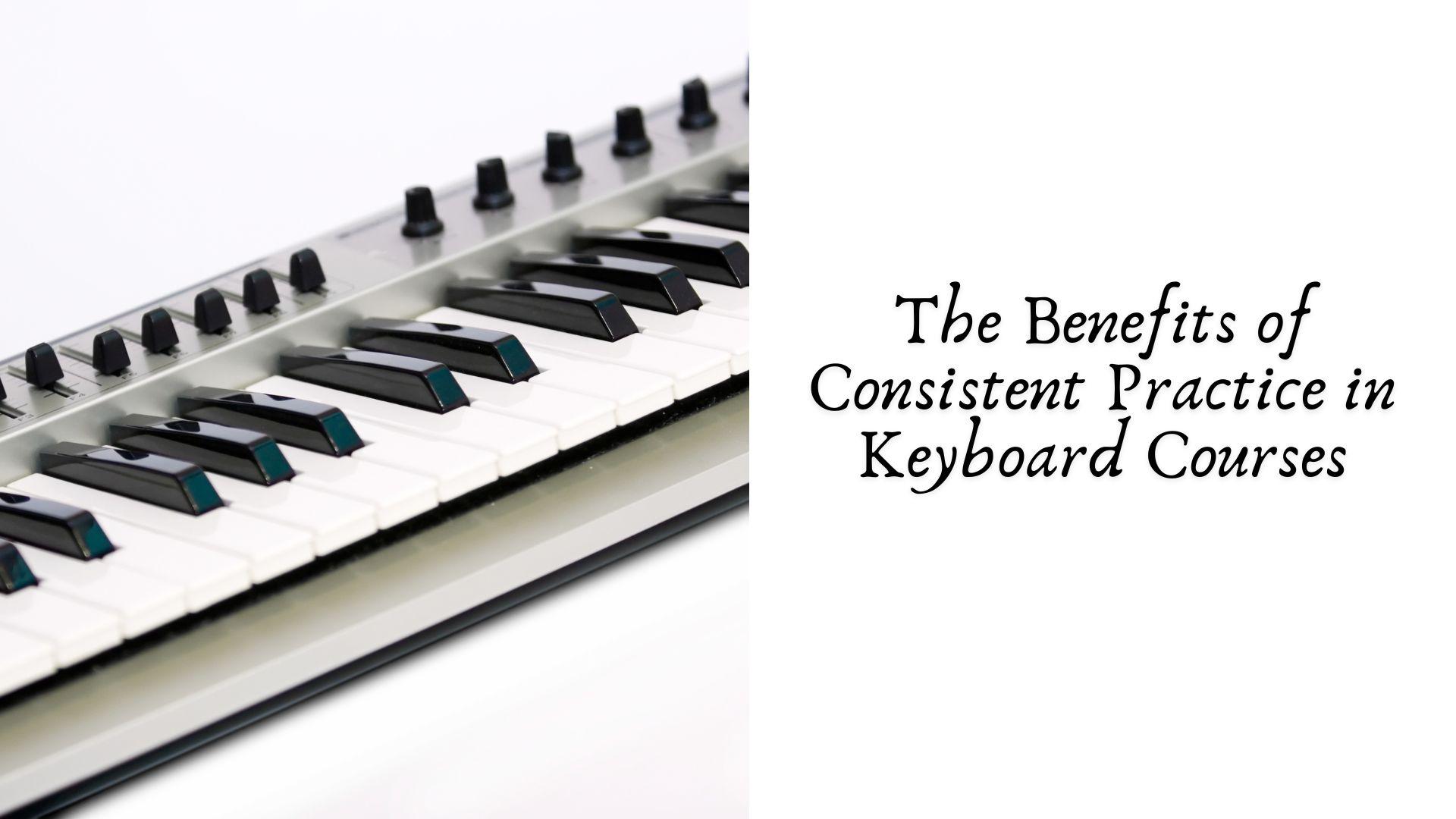The Benefits of Consistent Practice in Keyboard Courses

Learning to play the keyboard can be a deeply rewarding journey. Whether you're an aspiring musician or a hobbyist, keyboard courses offer structured guidance and skill development. However, one crucial element that determines how effective these lessons will be is consistent practice. This article delves into the many benefits of practicing regularly during keyboard courses and how it transforms your musical journey from simple finger exercises to expressive, confident performances.
Accelerated Skill Development
One of the most obvious yet often underestimated benefits of consistent practice is rapid skill advancement. Keyboard playing involves muscle memory, hand-eye coordination, rhythm, and theory comprehension. By practicing daily or on a steady schedule:
-
Your fingers become more agile and accurate.
-
Complex pieces become easier to tackle.
-
You can internalize scales, chords, and progressions more deeply.
Just 20–30 minutes of daily focused practice can bring more results than hours of irregular practice.
Stronger Muscle Memory and Finger Dexterity
The keyboard is both a mental and physical instrument. Consistent practice helps your fingers "remember" patterns and movements without conscious effort. Over time:
-
Your hands can move fluidly across keys without visual cues.
-
You develop better finger independence and strength.
-
Repetitive drills reinforce positioning, reducing mistakes during live play.
Muscle memory is crucial when transitioning from basic tunes to intermediate and advanced pieces.
Improved Sight-Reading and Ear Training
When you practice regularly, both your eyes and ears adapt to the nuances of music:
-
Sight-reading improves as your brain learns to process notes and rhythms quickly.
-
Ear training is enhanced because you begin to recognize intervals, chords, and melodic structures.
With regular exposure, even new compositions become less intimidating and easier to decode, boosting your confidence during performances.
Deeper Understanding of Music Theory
Keyboard courses often integrate music theory – scales, key signatures, chord progressions, modes, and more. Without consistent practice, this knowledge remains abstract. When applied regularly:
-
Theory concepts become tangible and practical.
-
You can experiment with improvisation and composition.
-
You begin to see the patterns and structure underlying different music genres.
Practice transforms theory from textbook knowledge into musical fluency.
Greater Retention and Long-Term Progress
A major frustration for many learners is forgetting what they’ve learned between lessons. Irregular practice results in having to re-learn concepts repeatedly. In contrast:
-
Consistency reinforces memory retention.
-
Your weekly lessons build upon each other smoothly.
-
You make steady, measurable progress, which is motivating.
Just like learning a language, playing the keyboard benefits immensely from frequent repetition and active use.
Increased Confidence and Performance Readiness
If you ever intend to perform—whether at a recital, in a band, or just in front of friends—consistent practice is your best preparation. The more you rehearse:
-
The less likely you are to stumble due to nerves.
-
You become familiar with stage scenarios and playing under pressure.
-
You develop the ability to recover from mistakes smoothly.
Confidence isn’t just about talent—it comes from knowing you've put in the work.
Building a Productive Routine and Discipline
Beyond musical growth, daily practice cultivates valuable life skills:
-
Discipline: Sticking to a routine improves time management and self-motivation.
-
Focus: Concentrated practice sessions sharpen attention span and mindfulness.
-
Goal-setting: Regular practice helps you set and achieve short- and long-term musical milestones.
These habits extend beyond music into academics, careers, and personal development.
Joy, Fulfillment, and Creative Expression
Perhaps most importantly, consistent practice transforms playing the keyboard from a task to a source of joy. As you become more proficient:
-
You enjoy playing favorite songs and exploring new genres.
-
You gain the confidence to compose your own music.
-
Music becomes a lifelong companion and outlet for emotional expression.
The deeper your engagement, the more rewarding the experience becomes.
Final Thoughts
While talent and passion certainly play roles in mastering the keyboard, nothing replaces consistent practice. It bridges the gap between knowing and doing, between struggling and performing with ease. Keyboard courses provide the road map, but consistent practice is the engine that drives you forward.
If you're currently enrolled in a course or planning to start one, make a commitment to regular practice. Even short, focused sessions can yield remarkable results over time. With patience and perseverance, you’ll not only play music—you’ll live it.
- Art
- Causes
- Crafts
- Dance
- Drinks
- Film
- Fitness
- Food
- Games
- Gardening
- Health
- Home
- Literature
- Music
- Networking
- Other
- Party
- Religion
- Shopping
- Sports
- Theater
- Wellness



